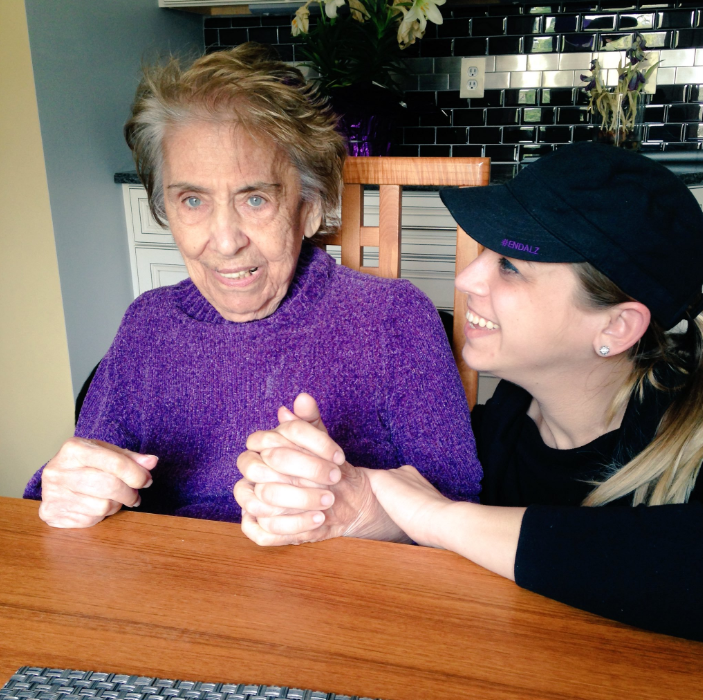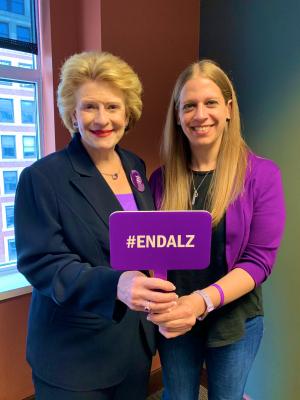Twenty years ago, my life took an unexpected turn when my "chupe", my grandmother was diagnosed with Alzheimer's at the age of 82. The lifeblood of my family, my grandmother lived to take care of us. Growing up down the street from her, we were always at grandmother's and I never imagined life without her down the street.
That's why when the diagnosis came there was no question, we adjusted our lives to become full-time caregivers. I withdrew from college and eventually my mom had to retire early. We knew we needed to take steps to care for the woman who spent most of her life caring for us, but we didn't know what those steps were or how to make a plan. We didn't even really know what deciding to be a full-time caregiver meant - there was a long and bumpy road ahead for all of us.
This week I had the honor of testifying to the Senate Finance Committee Subcommittee on Health about my family's experience with this devastating disease, what it means to be a full-time caregiver, and the resources my family and so many more could have used to navigate this journey.
When my grandmother and our family were given the diagnosis, that was it. They gave us our discharge papers and wished us the best of luck. No pamphlets, no explanations, no support. There we were facing this life-changing news and having to immediately make one major decision after the other, with no time or guidance to make a long-term plan.
As I explained in my testimony to the Committee, we weren't aware of resources that could have helped my mom and me manage the stress of caregiving, like adult day services and respite care. Unfortunately we learned about those too late - after my grandmother had passed away.
Fortunately, in 2017, Medicare began covering comprehensive care planning services to people with cognitive impairment - a critical step in improving the quality of care and quality of life for those with Alzheimer's and their caregivers. Everyone should have access to this lifeline. However, fewer than 1% of seniors living with Alzheimer's actually received care planning in 2017.
That is why I am so thankful to my home state Senator, Debbie Stabenow (D-Mich.) for introducing the bipartisan Improving HOPE for Alzheimer's Act (S. 880/H.R. 1873). Cosponsored by 46 Senators and nearly 200 members in the House, this important bill would help increase access to care planning services that would have significantly improved the quality of life for my grandmother, my mom, and me.
I am grateful to all the bill's cosponsors, the Alzheimer's Impact Movement (AIM), and all of my fellow advocates who are working so hard to raise awareness of this critical legislation that would improve the lives of all those affected by Alzheimer's.
To get involved and urge your members of Congress to support the bill please take action today. You can read my written testimony to the Senate Finance Committee and watch the full hearing here.

Lauren Kovach is an AIM and Alzheimer's Association advocate and Ambassador to Sen. Debbie Stabenow.
